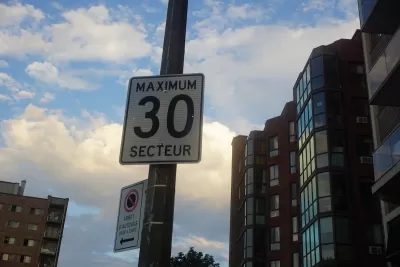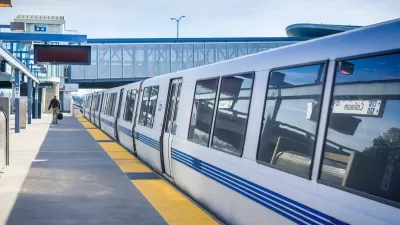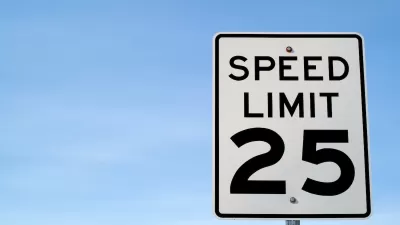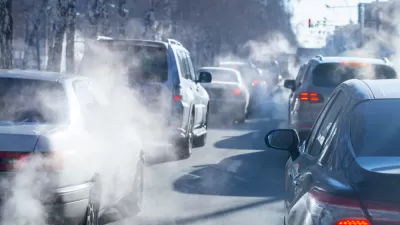Slowing down traffic can reduce greenhouse gas emissions in addition to improving roadway safety.

In an article in Policy Options, Jörg Broschek argues that reducing speed limits is one of the fastest ways to reduce greenhouse gas emissions.
According to Broschek, a speed limit of 30 kilometers per hour (18.64 miles) would also improve safety and mobility in addition to cutting emissions. “To be sure, 30 km/h zones won’t solve the problem all by themselves. But they are an important tool as part of a more equitable and sustainable local transportation infrastructure.”
As Broschek explains, “In zones of 30 km/h, many four-way stops can be done away with in residential neighbourhoods.” Broschek calls on Canadian municipalities to take action and adjust their speed limits, a common practice in Europe that few North American cities have adopted.
FULL STORY: Cities can speed up climate action by slowing down traffic

Rethinking Redlining
For decades we have blamed 100-year-old maps for the patterns of spatial racial inequity that persist in American cities today. An esteemed researcher says: we’ve got it all wrong.

Planetizen Federal Action Tracker
A weekly monitor of how Trump’s orders and actions are impacting planners and planning in America.

Walmart Announces Nationwide EV Charging Network
The company plans to install electric car chargers at most of its stores by 2030.

Seattle’s Pike Place Market Leans Into Pedestrian Infrastructure
After decades of debate, the market is testing a car ban in one of its busiest areas and adding walking links to the surrounding neighborhood.

The World’s Longest Light Rail Line is in… Los Angeles?
In a city not known for its public transit, the 48.5-mile A Line is the longest of its kind on the planet.

Quantifying Social Infrastructure
New developments have clear rules for ensuring surrounding roads, water, and sewers can handle new users. Why not do the same for community amenities?
Urban Design for Planners 1: Software Tools
This six-course series explores essential urban design concepts using open source software and equips planners with the tools they need to participate fully in the urban design process.
Planning for Universal Design
Learn the tools for implementing Universal Design in planning regulations.
City of Moorpark
City of Tustin
City of Camden Redevelopment Agency
City of Astoria
Transportation Research & Education Center (TREC) at Portland State University
Regional Transportation Commission of Southern Nevada
Toledo-Lucas County Plan Commissions





























